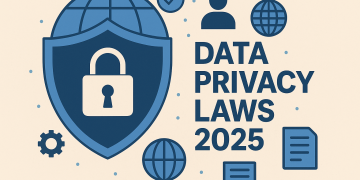Learn how to obtain your FCC General Radiotelephone Operator License (GROL) from home. Understand qualifications, study tips, and the exam process.
Introduction
The FCC General Radiotelephone Operator License (GROL) is a valuable certification for professionals in aviation, marine, and broadcasting industries. This license, issued by the Federal Communications Commission (FCC), authorizes individuals to operate, maintain, and repair communication equipment on ships, aircraft, and other stations. With the increasing demand for certified professionals in these fields, obtaining this lifetime license can open doors to exciting career opportunities.
The good news is that you can prepare for and obtain this license from the comfort of your home. This guide provides an overview of the license, the qualifications required, and the step-by-step process to prepare for and pass the necessary exams. Whether you’re starting a new career or advancing your skills, this article will help you navigate the licensing process with ease.
Part 1: Understanding the License
Step 1: Determine Who Needs the License
The GROL is required for individuals performing specific roles involving radio equipment, such as:
- Operating or maintaining radio equipment on ships, aircraft, and international fixed stations.
- Adjusting and repairing radio transmitters.
Many employers in the shipping, aviation, and broadcasting sectors mandate this license as a qualification for their technical roles.
Step 2: Meet the General Qualifications
To be eligible for the GROL, applicants must:
- Be able to receive and send spoken messages in English.
- Be a U.S. legal resident or authorized for employment in the U.S.
The license is valid for life and does not require renewal, making it a valuable long-term certification.
Step 3: Understand the Exam Structure
The GROL exam consists of two main elements:
- Element 1: Basic Radio Law and Operating Practice
- Focus: Maritime radio law and practices.
- Questions: 24 (18 correct answers required to pass).
- Element 3: General Radiotelephone Knowledge
- Focus: Electronics fundamentals, equipment maintenance, and operational techniques.
- Questions: 100 (75 correct answers required to pass).
For those working on marine vessels, a Radar Endorsement (Element 8) may be necessary. This additional exam includes:
- Element 8: Ship Radar Techniques
- Focus: Marine navigation using radar.
- Questions: 50 (38 correct answers required to pass).
Part 2: Preparing for and Passing the Exam
Step 1: Access Study Materials
The FCC provides official question pools for all exam elements. To access these materials:
- Visit the FCC’s Examinations Page and locate the “Examination Question Pool” section.
- Download the study guides for:
- Element 1 (Basic Radio Law)
- Element 3 (Radiotelephone Knowledge)
- Element 8 (Radar Endorsement, if applicable).
These question pools are the sole source of exam content, so focus exclusively on these materials to prepare effectively.
Step 2: Study the Material Thoroughly
- Master the Question Pools:
Carefully review all the questions and answers in the pools until you feel confident. These questions will appear verbatim on the test. - Practice Verbal Quizzing:
Have someone quiz you to reinforce your knowledge. - Avoid Outside Sources:
Additional study materials are unnecessary as the FCC exam uses only the official question pools.
Step 3: Locate a Testing Provider (COLEM)
The FCC does not directly administer GROL exams. Instead, it authorizes Commercial Operator License Examination Managers (COLEMs) to conduct them.
- Visit the FCC’s list of authorized COLEMs to find testing locations and schedules.
- Choose between in-person or online testing options, depending on your preference and availability.
- Contact your chosen COLEM to register for the exam.
Step 4: Take the Exam
During the exam:
- Follow the instructions provided by your COLEM.
- Use your preparation to confidently answer the questions.
- If you pass, you may receive a Proof of Passing Certificate (PPC) immediately.
Step 5: Submit Your License Application
After passing the exam, your COLEM may file your application electronically with the FCC. If not, submit your application along with the PPC directly to the FCC via their Universal Licensing System (ULS).
Additional Tips for Success
- Retake the Exam if Needed:
If you don’t pass, you can retake the test as many times as necessary, but additional fees will apply. - Keep Your License Updated:
Notify the FCC of any name changes to keep your license valid. - Focus on the Question Pools:
Since only official questions are used, mastering them ensures success.
Conclusion
Obtaining your FCC General Radiotelephone Operator License is an achievable goal with the right preparation. By understanding the license’s requirements, accessing the official study materials, and scheduling your exam through an authorized COLEM, you can secure this lifetime certification and advance your career in aviation, marine, or broadcasting industries. Start your journey today and unlock new opportunities in these exciting fields.









